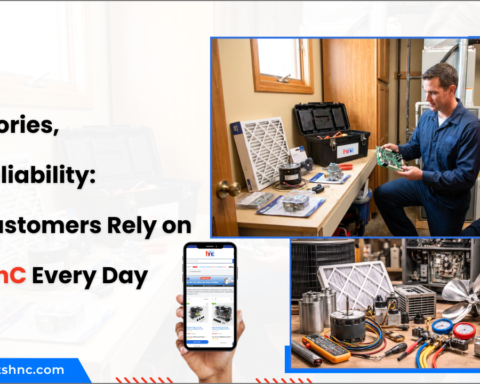Electric trucks are changing the transportation industry. They offer advantages like being environmentally friendly, efficient, and modern. Companies prefer them because they operate quietly and produce no emissions, helping to lower carbon footprints while keeping logistics running smoothly. However, there are important safety and liability issues to consider. The advanced technology in these trucks can be unpredictable, and when problems arise, deciding who is responsible can be complicated.
When an electric truck’s system fails—whether due to defective sensors, malfunctioning brakes, or battery fires—the results can be catastrophic. Victims often find themselves caught in a legal gray area, uncertain about where to turn. A Pittsburgh attorney specializing in truck accidents can help unravel these complexities, identifying liable parties and ensuring that victims receive fair compensation for their losses.
The Rise of Electric Trucks in Commercial Fleets
In recent years, electric trucks have shifted from futuristic prototypes to active players on American highways. Companies such as Tesla, Volvo, and Freightliner are leading this charge, investing billions into developing high-capacity electric vehicles capable of hauling heavy loads across long distances. Their appeal is clear—lower maintenance costs, fewer emissions, and a reduction in fuel dependency make them a sound business decision.
However, innovation always comes with growing pains. Electric trucks rely heavily on complex communication between electronic systems, sensors, and software algorithms. If even one of these components fails or misinterprets data, the result could be disastrous. Unlike traditional diesel trucks, where mechanical failure is easier to trace, pinpointing the cause of a malfunction in an electric vehicle can be a daunting process involving engineers, coders, and data analysts.
When Software Errors Cause Collisions
Software is at the heart of modern electric trucks. These vehicles are equipped with automated systems designed to enhance safety, including adaptive cruise control, lane departure warnings, and collision avoidance technology. But what happens when the code goes wrong?
A simple software glitch can have devastating results. For instance, if a truck’s braking algorithm fails to respond to a detected obstacle, or if a camera sensor misreads a lane marking, an accident can occur even when the driver reacts appropriately. Determining fault in such cases often involves tracing digital breadcrumbs—software logs, firmware updates, and programming decisions. It’s a highly technical process that blurs the line between human error and machine failure.
Battery Failures and Fire Hazards
One of the biggest safety concerns surrounding electric trucks is their lithium-ion battery systems. These batteries are powerful, but also volatile. A collision, overcharging issue, or internal short circuit can cause a battery fire—an event far more dangerous and persistent than traditional fuel fires. Some of these incidents have been known to reignite hours after being extinguished, posing ongoing risks to first responders and nearby drivers.
When such a fire occurs, liability could fall on a variety of parties. Was the battery poorly manufactured? Did the fleet operator improperly maintain it? Or did a design flaw make it vulnerable to overheating? Investigating these questions requires collaboration between engineers and legal experts, and the outcome often determines who must compensate the victims for damages and injuries.
Shared Liability in Tech-Integrated Accidents
Unlike traditional truck accidents, where a negligent driver or company might clearly be at fault, electric truck accidents often involve multiple layers of liability. The manufacturer, software developer, parts supplier, and maintenance provider all play roles in ensuring the vehicle’s safety. If one of them fails in their duty, the consequences can ripple outward.
In some cases, accidents result from a chain of errors: a faulty sensor sends incorrect data, software misinterprets that data, and the driver—trusting the system—fails to intervene in time. Sorting through this web of responsibility requires a thorough review of technical reports, system diagnostics, and communication records. This complexity makes legal representation essential for any party seeking justice after a crash involving electric technology.
The Role of Federal and State Regulations
Regulatory agencies are struggling to keep pace with the rapid evolution of electric and autonomous trucking. Federal standards for electric vehicle safety are still developing, particularly regarding self-driving capabilities, data retention, and cybersecurity. Meanwhile, state laws differ widely, creating uncertainty for victims seeking to file claims.
Without clear national guidelines, many cases rely on traditional legal principles of negligence and product liability. This lack of clarity can prolong litigation and make it harder to hold large corporations accountable. However, as more electric trucks hit the road and more accidents occur, new regulations are expected to emerge—aimed at defining responsibilities and improving safety oversight.
Gathering Digital Evidence After a Crash
Electric trucks don’t just leave physical evidence—they also record digital data that can reveal exactly what happened before and during a crash. This “black box” information is critical for understanding liability. It typically includes a variety of digital records such as:
- Telematics logs: Real-time data on speed, acceleration, braking, and steering.
- System alerts: Notifications about sensor malfunctions or software errors leading up to the incident.
- Camera footage: Multiple video angles capturing driver actions and road conditions.
- Firmware event reports: Documentation of when updates were installed and how systems performed under stress.
However, accessing this data isn’t easy. Manufacturers often guard it tightly, claiming proprietary protection over their software and logs. Victims’ attorneys must often seek court orders to obtain the information, emphasizing why experienced legal counsel is indispensable in these cases.
Why Legal Expertise Matters in Tech-Related Truck Accidents
Electric truck accident claims are different from regular personal injury cases. They need a mix of legal skills, technical knowledge, and careful investigation. Victims must not only recover from their injuries but also prove who is at fault when technology goes wrong.
A good lawyer can work with accident experts, data analysts, and industry professionals to build a strong case. They can find out what caused the failure, identify negligent manufacturers or service providers, and hold all responsible parties accountable. As electric and self-driving trucks become more common, attorneys who understand how technology and transportation law intersect will be crucial in protecting victims’ rights and encouraging safer innovations.
Read More Gorod








